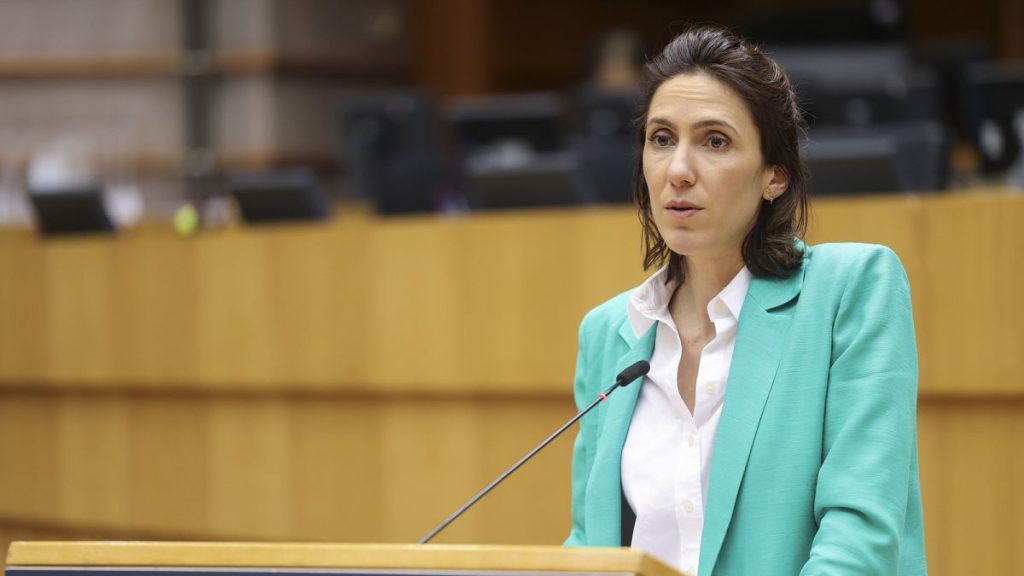Valérie Hayer, the president of the European Parliament’s centrist faction, has expressed strong disapproval of the agreement to form a new government in the Netherlands. This agreement involves the far-right Party for Freedom (PVV) led by Geert Wilders, who is known for his anti-Islam and Eurosceptic views. The coalition government also includes the New Social Contract (NSC), the Farmer-Citizen Movement (BBB), and the liberal Party for Freedom and Democracy (VVD) led by Mark Rutte. Hayer’s Renew Europe group, to which VVD belongs, is concerned about the values represented by PVV and the measures proposed in the coalition agreement.
The coalition agreement includes strict measures on asylum seekers, restrictions on family reunifications for refugees, and a reduction in international students in the Netherlands. This agreement contradicts a recent declaration signed by Renew Europe, pledging to never cooperate or form a coalition with far-right and radical parties. The timing of this agreement is also crucial as it comes just before the European elections, where Hayer’s centrist group is expected to lose seats to the far-right Identity and Democracy (ID) group. The Dutch coalition deal highlights the growing influence of far-right parties in mainstream politics across the EU.
The Dutch coalition agreement is significant as it marks the first time a party from the far-right ID group has formed a coalition government with mainstream parties in the EU. This trend of far-right parties gaining power is reflected in polls indicating a shift to the right in several EU member states. Countries like France, Belgium, and the Netherlands are expected to see far-right parties winning in the upcoming elections. Croatia’s ruling party has also formed a coalition with the far-right Homeland Movement, aligning with the growing acceptance of right-wing ideologies in European politics.
The emerging partnerships between mainstream parties and far-right groups within the European Conservatives and Reformists (ECR) signal a shift towards greater acceptance of right-wing populism. Parties in countries like Czech Republic, Finland, Italy, and Sweden have already entered into governing deals with far-right or Eurosceptic parties. Hungarian Prime Minister Viktor Orbán, known for his hardline right-wing policies, has congratulated Wilders on the Dutch coalition deal. The center-right EPP, criticized for keeping doors open to right-wing populists, may change its collaboration approach in the EU Parliament.
The potential re-alignment of the center-right EPP, led by Ursula von der Leyen, with right-wing populist parties in the European Parliament could alter the political dynamics in Brussels. Traditionally, the EPP has worked with center-left parties in the EU Parliament, but recent actions have widened the gap between right-wing, liberal, and left-leaning partners. The refusal of the EPP to sign a joint statement denouncing violence against lawmakers ahead of the elections highlights the diverging views within the EU Parliament. As Europe moves towards the elections, the political landscape is evolving with the increasing influence of far-right parties and potential shifts in mainstream party alliances.













